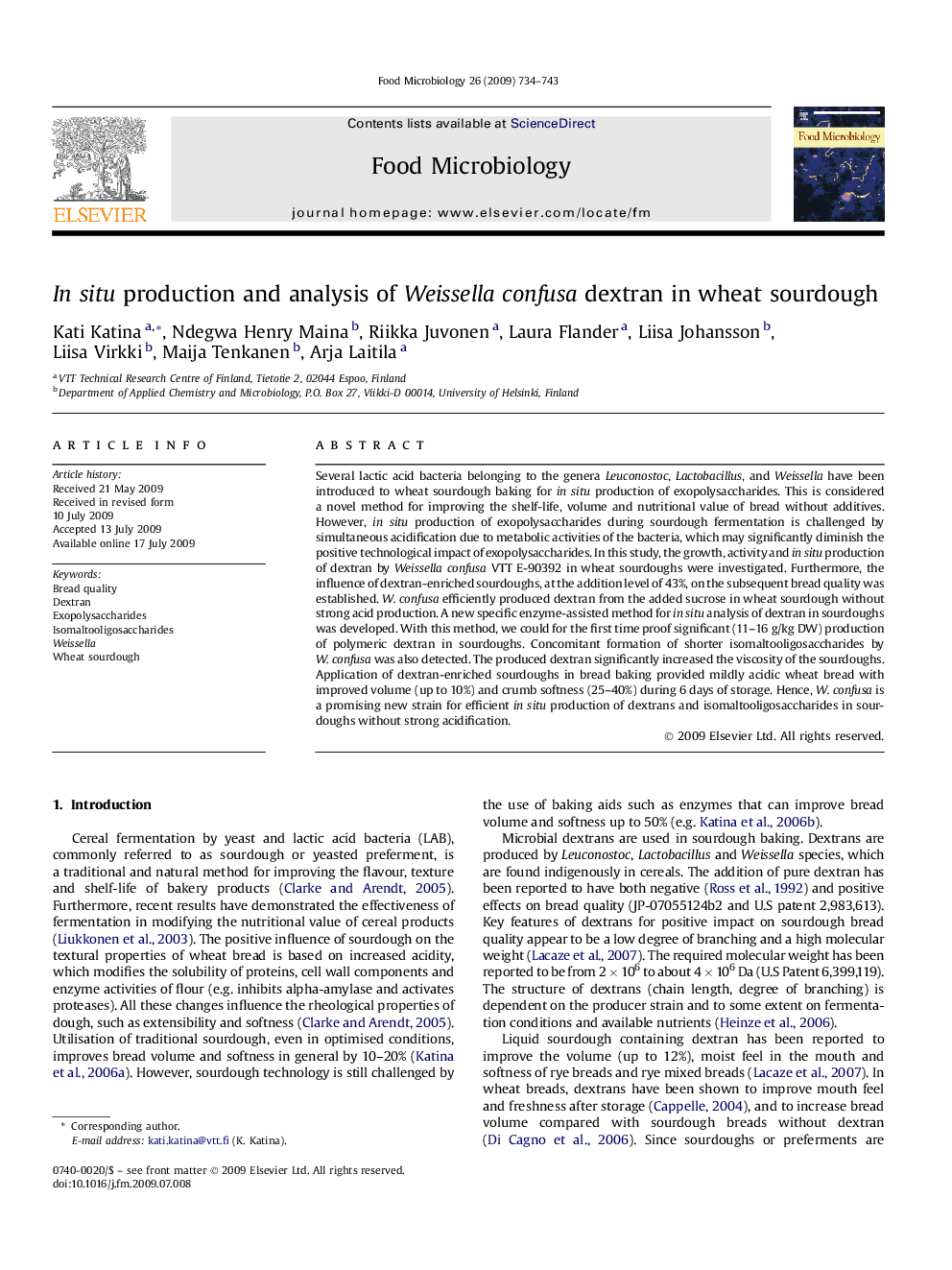| Article ID | Journal | Published Year | Pages | File Type |
|---|---|---|---|---|
| 4363599 | Food Microbiology | 2009 | 10 Pages |
Several lactic acid bacteria belonging to the genera Leuconostoc, Lactobacillus, and Weissella have been introduced to wheat sourdough baking for in situ production of exopolysaccharides. This is considered a novel method for improving the shelf-life, volume and nutritional value of bread without additives. However, in situ production of exopolysaccharides during sourdough fermentation is challenged by simultaneous acidification due to metabolic activities of the bacteria, which may significantly diminish the positive technological impact of exopolysaccharides. In this study, the growth, activity and in situ production of dextran by Weissella confusa VTT E-90392 in wheat sourdoughs were investigated. Furthermore, the influence of dextran-enriched sourdoughs, at the addition level of 43%, on the subsequent bread quality was established. W. confusa efficiently produced dextran from the added sucrose in wheat sourdough without strong acid production. A new specific enzyme-assisted method for in situ analysis of dextran in sourdoughs was developed. With this method, we could for the first time proof significant (11–16 g/kg DW) production of polymeric dextran in sourdoughs. Concomitant formation of shorter isomaltooligosaccharides by W. confusa was also detected. The produced dextran significantly increased the viscosity of the sourdoughs. Application of dextran-enriched sourdoughs in bread baking provided mildly acidic wheat bread with improved volume (up to 10%) and crumb softness (25–40%) during 6 days of storage. Hence, W. confusa is a promising new strain for efficient in situ production of dextrans and isomaltooligosaccharides in sourdoughs without strong acidification.
